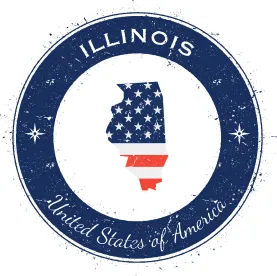On August 9, 2019, Governor Pritzker signed into law Public Act 101-0221 (the “Act”), which enhances protections against workplace sexual harassment and discrimination. The Act creates new laws and amends several existing ones, including the Illinois Human Rights Act (“IHRA”), as summarized below:
NEW LAWS
The Workplace Transparency Act (“WTA”).
The Workplace Transparency Act will apply to all contracts entered into, modified or extended on or after January 1, 2020, and limits the use of confidentiality provisions in employment agreements and arbitration of sexual harassment and other Title VII or IHRA violations. (Our post on the WTA can be accessed here.)
The Hotel and Casino Employee Safety Act.
Beginning on July 1, 2020, certain employers in the hospitality and casino industries will be required to:
-
Equip employees with personal safety and notification devices that may be used to summon help if they are the victim of or are witnessing sexual harassment or a crime.
-
Expressly inform each of their employees about the protections against sexual harassment and discrimination as found in the IHRA and Title VII. Employers will now be required to include specific language in written anti-sexual harassment policies instructing employees to leave the work area immediately if they perceive danger.
-
Take measures to separate employees from offending guests and accommodate employees who seek legal protection against offending guests. Employers will now be required to offer employees temporary work assignments to accommodate them if they complain about guests who have engaged in sexual harassment and provide employees with paid time off to make police reports about offending guests and to attend legal proceedings regarding any such complaints.
UPDATES TO THE IHRA
Beginning on January 1, 2020, the IHRA will now:
-
Expressly apply to working environments beyond the physical location at which employees perform their assigned duties, signifying that sexual harassment of remote workers taking place exclusively online and/or outside the workplace is prohibited by the Act;
-
Protect against discrimination or harassment on the basis of an individual’s “perceived” status protected by the IHRA;
-
Protect non-employees performing work for an employer (e., contractors and consultants in an employer’s workplace); and
-
Require all Illinois employers to establish a training program consistent with a forthcoming state sexual harassment program, and issue training at least once per year to all employees.
In addition, beginning July 1, 2020, Illinois employers will be required to disclose annually the number of adverse judgments or administrative rulings that have been entered against the employer related to sexual harassment or certain types of discrimination. If the Illinois Department of Human Rights investigates a civil rights charge against an employer, the employer may be required to disclose the total number of settlements related to sexual harassment or discrimination.
IMPLICATIONS
Companies with Illinois-based operations should review and update employee handbooks, trainings, arbitration agreements, employment agreements with confidentiality provisions and any severance and/or separation agreements to ensure they are in compliance with the Act.





 />i
/>i

